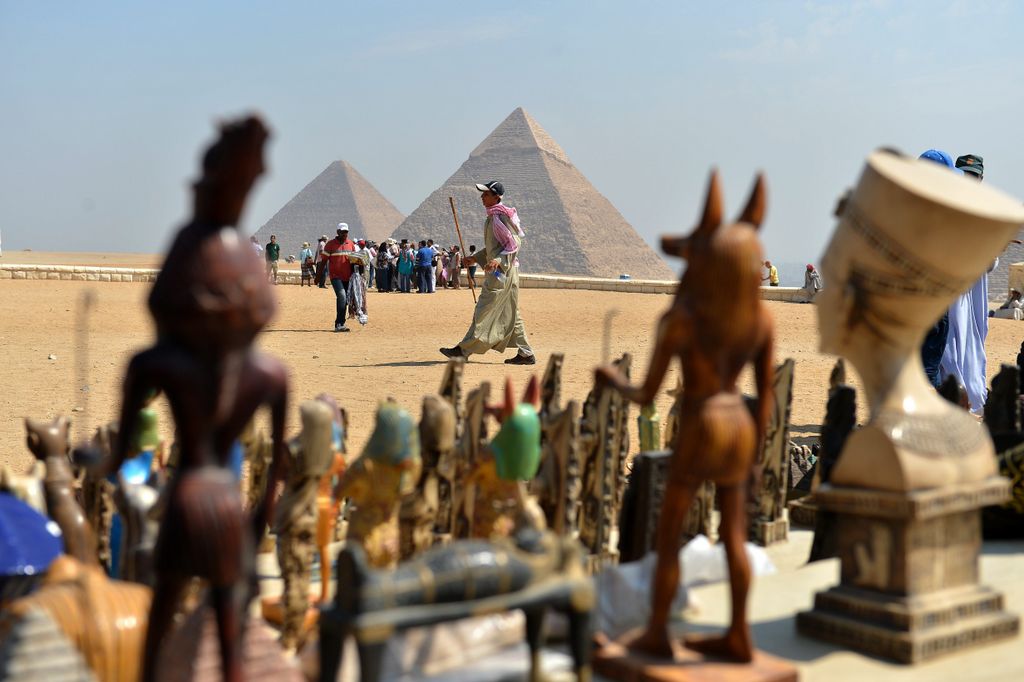CAIRO: Egypt’s net international reserves (NIR) dropped again last month to reach $30.1 billion, the lowest level in more than three years, on back of a drop in revenue sources and attempts to prop up the pound.
Analysts have said that this downward trend will likely continue, but at a slower pace.
Reserves had fallen to $33.32 billion at the end of February from $35.01 billion in January, shedding a total of $5.9 billion from January to March 2011, the central bank said on its website Monday.
Investment bank Beltone Financial reported that “Egypt’s holdings of gold remained unchanged at $2.180 billion, while holdings of [Special Drawing Rights] SDRs increased by $10 million in March 2011 to $1.295 billion, and loans to the [International Monetary Fund] IMF remained unchanged at $88 million.”
Beltone expects Egypt’s NIR position to continue its downward trend over the coming months, “albeit at a decelerating pace falling to an estimated $24-26 billion by June 2011.”
Magdy Sobhy, deputy director of Al-Ahram Center for Strategic Studies, cited two main reasons for the decline in NIR: a drop foreign reserve sources, such as income from the Suez Canal, tourism and exports, as well as the CBE using up reserves in attempt to support the pound.
He agreed that NIR’s decline may continue but not at the same speed. “Suez Canal revenues are returning back to normal, and I don’t see export revenues decreasing any further after decreasing 40 percent over the previous months,” Sobhy said.
“I also think that the CBE should stop intervening in the exchange rate since the negative effects on the economy were much less than anticipated, no banks went bankrupt, the stock market is performing better than expected and there has only been a 1-1.5 percent change in the value of the pound.
“The CBE should refrain from any intervention unless it is to curb currency market speculation which is the policy they had previously announced,” Sobhy added.
The CBE has said that it was prepared to allow the Egyptian pound to fall gradually in coming months if demand for the currency were to decrease, and that it was not targeting a specific exchange rate.
"It was always our policy. Our policy is always that we don’t target prices" for the currency, Hisham Ramez, the central bank’s deputy governor, previously told Reuters.
In an emailed note, Beltone attributed the fall in NIR to the weak performance of Egypt’s “key foreign currency earners namely tourism, and to a lesser degree remittances and an increased demand for imports, especially for food items, which faces an upward pressure given the global rise in food prices.”
Investment bank CI Capital had a similar analysis, saying that at the end of the third quarter in 2011, NIR dropped 16 percent from December 2010, driven by the 11 percent month-on-month drop in foreign currency as the CBE continues to support the EGP.
“The anticipated weak external sector performance over the first quarter of 2010 reflects negatively on foreign reserves. We believe further downward pressure will be created on net international reserves, given the CBE’s continuous support to the local currency and the maintained weak external sector. However, once tourism and exports rebound, this will reflect positively on reserves,” CI Capital said.
Regarding tourism, one of the most vital sectors to stall in the past months, Beltone said, “We have been observing an increment improvement in the tourism sector, albeit at a gradual and uneven pace with average occupancy rates hovering around the 25 percent earlier in March 2011 from 5 percent at the beginning of the revolution and areas around the Red Sea continue to see a more notable recovery than Cairo and Upper Egypt,” Beltone said.
They expect this to continue in light of the improving security environment and progress on the political front which, together, is prompting lifting of travel bans to Egypt from key sources of incoming tourists.
Russia, one of Egypt’s key tourist markets, just lifted its travel ban last week.
Remittances receipts are also expected to perform better.
Beltone said that since remittances are tied to the economic outlook in the GCC region, the US and Europe, they would not see a sharp decline over the forecast period but warned that unfolding political events in the GCC region, representing 50 percent of remittances, poses a downside risk.
“I think that things can only get better but all of this is depends on political stability and security, we have passed the bottleneck,” Sobhy said.
Despite the drop, Beltone said, “Egypt’s NIR position remains at a comfortable level, covering an estimated 7.4 months of merchandise imports in March 2011, from around 8.8 months end-2010.”
NIR can also “continue to cushion the short-term implications of the current political unrest.”


